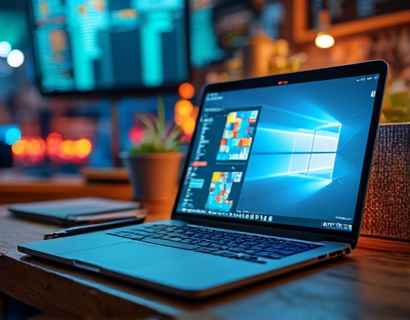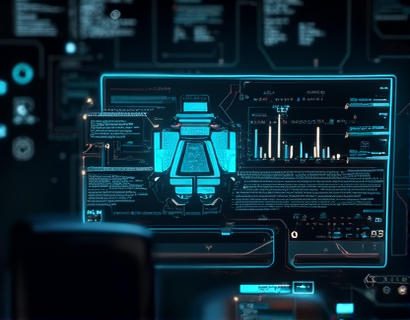Decentralized File Management: Elevating Business Collaboration with Secure and Efficient Online Solutions
In the rapidly evolving landscape of business collaboration, the need for secure and efficient file management solutions has become paramount. Traditional centralized file management systems often fall short in terms of security, accessibility, and scalability, leading organizations to seek alternative approaches. Decentralized file management offers a promising solution, leveraging blockchain technology and distributed networks to redefine how businesses handle their digital assets. This article delves into the benefits and functionalities of decentralized file management, highlighting how it can transform team collaboration and information management.
Decentralized file management platforms are designed to provide a robust and secure environment for storing, sharing, and collaborating on files. Unlike conventional systems that rely on a central server, these platforms distribute data across a network of nodes, ensuring that no single point of failure can compromise the entire system. This decentralization not only enhances security but also improves data availability and resilience against cyber threats.
Enhanced Security Measures
Security is a top priority in any file management system, especially for businesses handling sensitive information. Decentralized platforms employ advanced cryptographic techniques to protect data at rest and in transit. Each file is encrypted using unique keys, accessible only to authorized users. This ensures that even if a node in the network is compromised, the data remains secure due to its distributed nature.
Moreover, decentralized systems often utilize blockchain technology to maintain an immutable record of all file transactions. This transparency and immutability prevent unauthorized modifications and provide a clear audit trail, which is crucial for compliance and regulatory purposes. The use of smart contracts further automates and secures the management of file permissions and access rights, reducing the risk of human error and fraud.
Improved Accessibility and Collaboration
One of the most significant advantages of decentralized file management is the enhanced accessibility it offers. Files are accessible from anywhere in the world, as long as there is an internet connection. This global accessibility is particularly beneficial for remote teams and organizations with multiple locations, as it eliminates the need for cumbersome file transfer processes and ensures everyone is working with the most up-to-date versions of documents.
Collaboration is significantly streamlined on decentralized platforms. Users can simultaneously work on the same file without the risk of overwriting each other's changes, thanks to advanced version control and conflict resolution mechanisms. Real-time collaboration features allow team members to see each other's edits in real time, fostering a more dynamic and interactive working environment. This level of collaboration not only boosts productivity but also enhances creativity and innovation within teams.
Scalability and Cost Efficiency
Decentralized file management systems are highly scalable, capable of handling large volumes of data and a growing number of users without performance degradation. This scalability is achieved through the addition of more nodes to the network, which distributes the load and maintains optimal performance. For businesses, this means they can easily scale their file management capabilities as their needs evolve, without the need for significant infrastructure investments.
Cost efficiency is another key benefit. Traditional centralized solutions often require substantial upfront investments in hardware and software, along with ongoing maintenance and support costs. Decentralized platforms, on the other hand, operate on a more flexible pricing model, typically based on usage. This pay-as-you-go approach allows businesses to pay only for the resources they consume, reducing unnecessary expenses and optimizing budget allocation.
User-Friendly Interface and Ease of Use
Despite the complexity of decentralized technology, modern file management platforms are designed with user experience in mind. These platforms offer intuitive and user-friendly interfaces that make it easy for users to navigate, organize, and share files. The simplicity of the interface ensures that team members, regardless of their technical expertise, can quickly adapt and make the most of the system's features.
File organization is streamlined through robust metadata tagging and categorization tools, allowing users to create a hierarchical structure that mirrors their existing workflows. Search functionalities are enhanced with advanced filtering options, making it easy to locate specific files or sets of files quickly. This efficiency in file management translates directly into increased productivity and reduced operational overhead.
Case Studies and Real-World Applications
Several organizations across various industries have successfully implemented decentralized file management solutions, reaping significant benefits. For instance, a global software development company reported a 40% increase in collaboration efficiency after migrating to a decentralized platform. The real-time collaboration features and seamless access to project files across different time zones and locations were key factors in this improvement.
A healthcare consortium leveraged a decentralized file management system to securely share patient records among multiple facilities. The immutable audit trail and enhanced security measures ensured compliance with stringent regulatory requirements, while the improved accessibility allowed medical professionals to access critical information swiftly, enhancing patient care.
In the financial sector, a multinational bank adopted a decentralized solution to manage internal documents and client data. The platform's robust security features and compliance capabilities helped the bank reduce the risk of data breaches and meet regulatory standards more effectively. The cost savings from reduced infrastructure and maintenance expenses further justified the transition.
Future Trends and Innovations
The future of decentralized file management is promising, with ongoing innovations set to enhance its capabilities even further. The integration of artificial intelligence and machine learning can optimize file organization and retrieval processes, making them more intelligent and user-centric. Enhanced privacy features, such as zero-knowledge proofs, can provide additional layers of security, ensuring that sensitive information remains confidential even within the decentralized network.
Interoperability with other decentralized applications and platforms is another area of focus, enabling seamless data exchange and integration. This will facilitate a more connected and efficient ecosystem, where businesses can leverage multiple decentralized services to meet their diverse needs.
Conclusion
Decentralized file management represents a significant leap forward in business collaboration and information management. By offering enhanced security, improved accessibility, and cost efficiency, these platforms address many of the challenges faced by traditional centralized systems. As more organizations recognize the benefits of decentralization, the adoption of these innovative solutions is likely to grow, reshaping the future of digital collaboration.











































